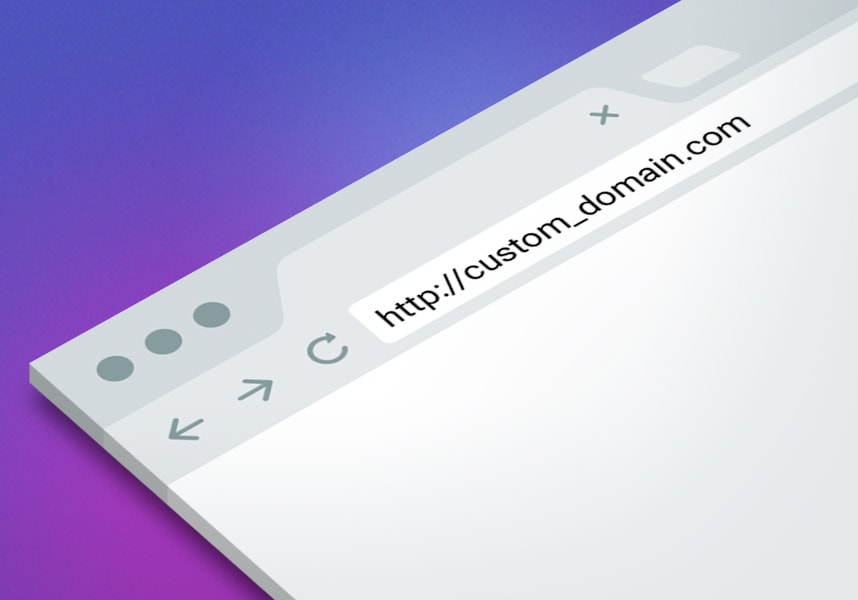You might have encountered custom domains for tracking. You might even have already used them. But what are they for? How can they help you with affiliate marketing?
It’s a pretty new thing in performance marketing, these custom domains. They appear in trackers but not only – you can find them in email marketing tools as well. What do they do? Who are they for?
We’re about to find out.
What is a custom domain?
Usually, when someone clicks a tracking link, the tracker has to redirect him or her to the offer through its own servers. During that couple of milliseconds of redirect, it collects data about the user. By default, it would be a tracking domain set up by the tracker owners. For example, it could look like this: 6ab31a.yourtracker.com. This way, your subdomain inherits the rank from the main domain. It’s shared with all users of that tracker – and this might not be something you desire.
We’ve recently released Dedicated Domains and are in the middle of migrating users to the new ones. This way, every account has its very own domain – and the account owners are the only ones responsible for its performance.
However, instead of using coded domains, you could set up a custom domain.
Why do you need a custom domain?
If you have an SEO background, you’ll know that domains are ranked and based on whether they might be considered as trusted entities, or low-level, spammy ones. Being on the trusted side would rank you higher in the search engine results while reaching one of the lowest scores might get you banned.
Of course, every search engine or email client might use their own data and not exchange it. But the truth is – they share information to some extent, mostly via API calls to Majestic or Alexa ranks. If you rank low on one of them, the outcome might be devastating.
For example, if the user is on Chrome, he can get a warning about the redirect on an “untrusted” domain and won’t move forward from clicking the link to landing on the offer. It’s an almost certain click loss.
But how can you avoid such situations? By running traffic through your own domain.
The benefits
The simplest advantage of using a custom domain is that you are responsible for your actions only. Your traffic won’t be affected by other tracker users. This way, you can work your way to ranking high and not getting your visitors stuck in the middle of their journey to your products. Or, use your domain that has already been ranked high.
By using custom domains, you can customize the campaign, click and tracking pixel URLs for every campaign. You won’t be recognized as a user of any tracking tool. The whole path from the ad to the offer will be consistent. It’s definitely better for brands, but also for any company that wants to have their whole message clear and not to challenge the trust of their clients. A tracking link set up on a custom domain appears more as a UTM link.
Should I use a custom domain?
Yes! Especially if you are managing big budgets, but it’s not only for the biggest players. If you don’t feel the need for a custom named domain, it’s wise to check if your tracker supports dedicated domains at least. This will save you from future problems which you may encounter when a shared domain is affected by the actions of other users.
It’s all about being proactive in terms of security. Better to be safe than sorry!
If you’re in a hurry, here’s a quick wrap up:
Key takeaways:
- Trackers are collecting data by redirecting the user through their servers.
- This is possible by using the tracking URL, most often using the tracker’s own domain.
- If you share your domain with others, your domain ranking – thus the performance – might be affected by other marketer’s activities.
- To avoid this problem, you should use dedicated domains or custom domains.
- Custom domains allow redirecting traffic through your own domain.
- Dedicated domains are not affected by other users, but they are a set of random characters.
- Use custom domains to keep messaging consistency, build trust and make your data secure.





4 comments
But how do you use them? The title is “How To Use a Custom Domain In Your Campaigns?” but the article doesn’t say how to use a custom domain.
Hi Marco! The article is focused on the benefits of using custom domains, and why it’s good to use them. I’ll change the title, so it will no longer be misleading, thanks for the feedback!
To answer your question – you can check our documentation that explains in detail how to set them up.
@Mateusz – if somebody wanted to track my Voluum Account or report me to Voluum, would adding a Custom Domain prevent this? Could they ever tell I was using Voluum?
Hi Rob,
if you use our custom or dedicated domains, no one will figure out that you use Voluum to track your conversions.
If you’re afraid that your traffic might be targeted by fraudsters, you can block their suspicious IP/UA addresses and prevent them from generating potential fake events. You can find out more about our anti-fraud solutions here: https://voluum.com/blog/are-bots-eating-your-traffic-voluum-anti-fraud-kit-is-coming-to-your-rescue/
Best,
Kamila